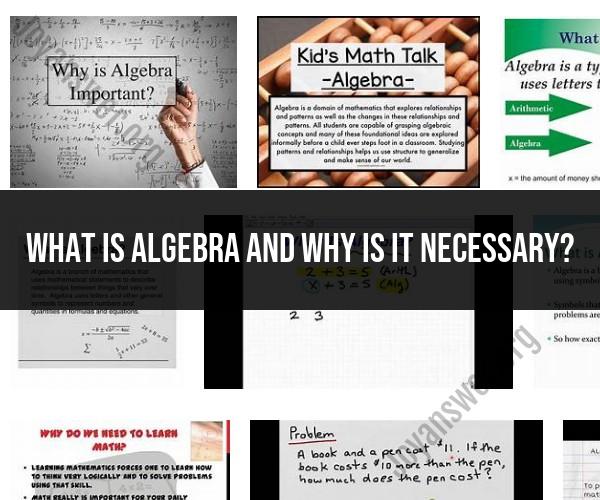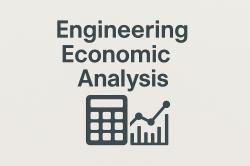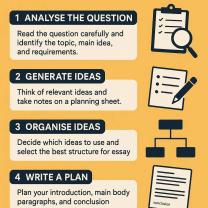What is algebra and why is it necessary?
Algebra is a branch of mathematics that deals with symbols, variables, and the rules for manipulating these symbols to solve equations and study relationships between quantities. It is a fundamental and essential part of mathematics with significant importance and various practical applications. Here's why algebra is necessary and its significance:
Problem Solving: Algebra provides a structured way to solve a wide range of mathematical problems. It enables you to represent real-world situations as equations or inequalities and then use algebraic techniques to find solutions.
Modeling Real-World Scenarios: Algebraic expressions and equations are used to model and analyze real-world problems in fields such as physics, engineering, economics, and biology. For example, you can use algebra to model the growth of populations, predict financial outcomes, or analyze physical systems.
Foundational Mathematics: Algebra is a foundational subject in mathematics. It introduces students to the concepts of variables, functions, and equations, which are fundamental for more advanced mathematical topics like calculus, linear algebra, and differential equations.
Critical Thinking: Studying algebra enhances critical thinking and problem-solving skills. It encourages logical reasoning, pattern recognition, and the development of strategies to simplify and solve complex problems.
Career Opportunities: Proficiency in algebra is often a prerequisite for many careers and educational paths. It is essential for fields such as science, technology, engineering, mathematics (STEM), finance, and data analysis.
Financial Literacy: Algebra is crucial for understanding and managing personal finances, including budgeting, investment analysis, and loan calculations. It helps individuals make informed financial decisions.
Scientific Research: In scientific research and experimentation, algebraic models are used to describe relationships and make predictions. Scientists use algebra to analyze data, validate hypotheses, and draw conclusions.
Technology Development: Algebra plays a key role in the development of technology, including computer programming, software development, and engineering design. It's used to create algorithms and solve computational problems.
Quantitative Literacy: In a data-driven world, algebraic skills are essential for interpreting and making sense of quantitative information. It allows individuals to understand statistical data, graphs, and charts.
Problem Diversification: Algebra helps diversify problem-solving approaches. By using algebra, you can tackle a wide range of problems, from finding unknown values in equations to optimizing solutions and making predictions.
In summary, algebra is a fundamental mathematical discipline that provides the tools and language to solve problems, model real-world scenarios, and understand relationships between variables. Its applications extend across various fields and are essential for both academic and practical purposes. Mastery of algebraic concepts is a valuable skill that empowers individuals to analyze, interpret, and solve complex problems in a wide range of contexts.












